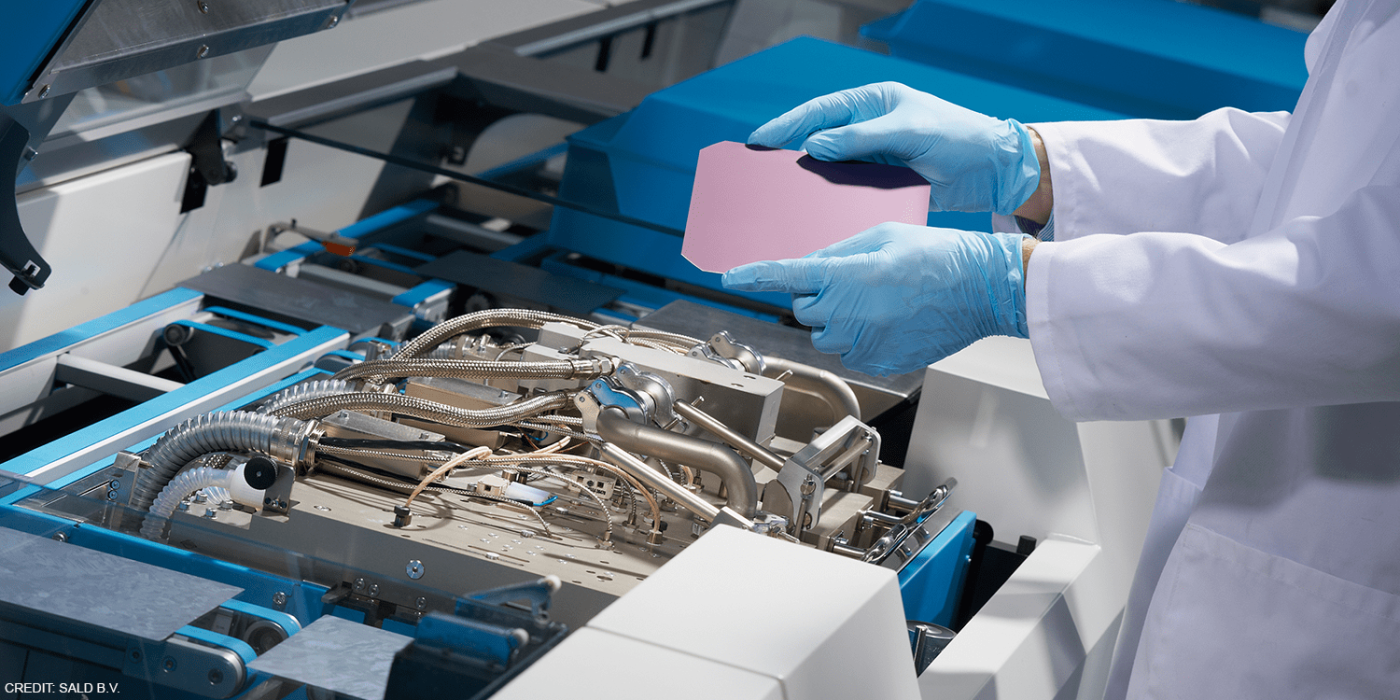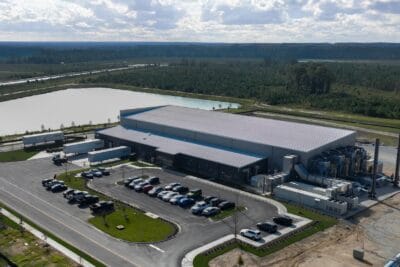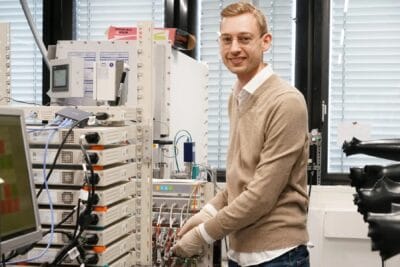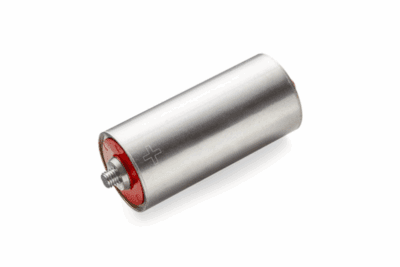German-Dutch research for 1,000-km battery
A new type of battery technology called ‘Spatial Atom Layer Deposition’ (SALD) is to enable higher capacities and charging performance for electric cars for “well over 1,000 kilometres range.” A company has now been founded for the series production of such cells.
The process has been jointly developed by a Dutch company, German Fraunhofer Institutes and the Dutch state research institution TNO (Toegepast Natuurwetenschappelijk Onderzoek or Netherlands Organisation for applied scientific research). The marketing for industrial mass production is the responsibility of SALD BV (Eindhoven), a company founded specifically for this purpose.
“Spatial Atom Layer Deposition” refers to a patented process for applying coatings on an industrial scale that are as thin as a single atom. Transferred to batteries, this means that the material utilisation is significantly increased since the electro-chemical reaction in batteries usually only takes place on the surface. Material inside the component does not take part in the reaction. The proportion of materials such as cobalt, nickel or manganese could be reduced to a minimum if only an extremely thin layer had to be applied.
The SALD technology is basically not new and was already invented in 2008. It is a further development of atomic layer deposition (ALD), which is used for example in the production of computer chips. However, the process is quite lengthy. With the SALD technology, the production speed can be increased five to ten times. Within the framework of cooperation with research institutes, SALD BV has apparently succeeded in developing a relatively small production machine and making the technology applicable in other production areas such as batteries, for example, or clothing and packaging with atomic thin but tear-resistant coatings. With the upturn in electromobility, battery products appear to be the more promising business area.
Other companies are working on similar technologies, but SALD BV now wants to be able to quickly scale the technology to mass production and is the only company in the world to do so.
SALD says that its batteries not only provide three times the range for electric cars than today’s battery cells, but can also be charged five times faster. This means an electric car can be charged up to 80 per cent in ten minutes and fully charged in 20 minutes.
According to Frank Verhage, CEO of SALD, battery technology will be able to be installed in electric cars “in 2022/2023 at the earliest”. The company is already in talks with car manufacturers but does not want to name any names. An IPO in the near future is apparently not planned, but there are said to be “countless inquiries” from investors.
Technology to work with liquid and solid electrolyte
The SALD batteries are basically lithium-ion batteries, although the company speaks of a “further development of today’s lithium-ion technology”. After all, it is not the cell chemistry that is fundamentally changed, but rather the production process with the coating method. According to the company, its own technology works with both liquid electrolytes and solid-state batteries.
The company says that “SALD technology is working with, for example, the new lithium iron phosphate batteries that Tesla has announced for its latest low-cost Model 3 in China”. Verhage also mentions Tesla Battery Day: “It is the same insight that battery cells need to be fundamentally enhanced by significantly improving the ion flow between cathode and anode to achieve breakthrough advances”.
The nanocoating will create an “artificial solid-electrolyte interphase” (A-SEI), which is expected to offer significantly better performance than previous SEIs. As a result, durability, safety and capacity will be significantly increased. “As a result, an electric car will be able to drive well over 1,000 kilometres with smaller batteries or even over 2,000 kilometres with larger battery packs in the future without recharging,” says Verhage. However, this is not a “theoretical range record”, but rather the worst-case scenario: even with “sporty, dynamic driving and air conditioning or heating”, such a vehicle should have a residual charge of 20 to 30 per cent.
The company itself has its roots in solar technology: According to the company’s homepage, SALD is a spin-off of SoLayTec, which has developed and sold a similar coating process for the mass production of solar panels. The machines are therefore mainly used in China. For the battery coating, SoLayTec has worked closely with Fraunhofer institutes and the TNO. However, it is not clear from the homepage how exactly the ownership of SALD BV is divided.
With reporting by Sebastian Schaal, Germany
automobilwoche.de (in German)





5 Comments